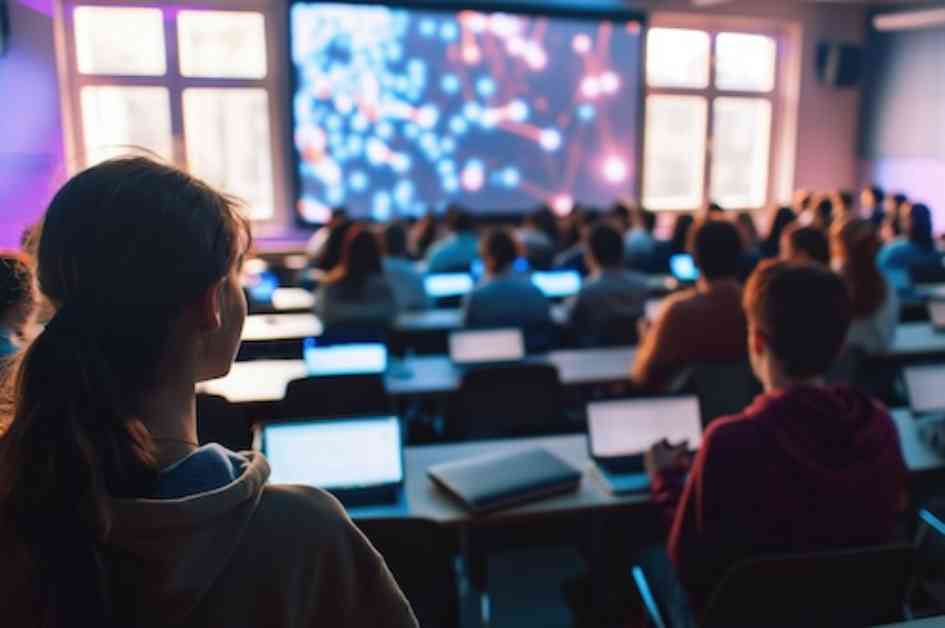Educators and industry leaders are gearing up for a transformative year in education as we step into 2025. The landscape of learning has been evolving rapidly, with innovative solutions and technology-driven approaches reshaping the way we teach and learn. As we look ahead, it’s crucial to anticipate the key education trends that will shape the coming year, from embracing artificial intelligence in education to the rise of nontraditional school models in response to changing student needs and preferences.
Nontraditional School Models: Embracing Innovation in Education
In a world that has seen significant shifts in technology, career opportunities, and societal norms, the traditional model of public schools in the US has remained largely unchanged for generations. However, the tide is turning as more students and families seek out nontraditional learning opportunities that cater to their individual needs and interests. The COVID-19 pandemic served as a catalyst for change, prompting a significant number of families to explore alternative educational approaches. Since 2019, over 1 million students have transitioned away from traditional classrooms in favor of more innovative and engaging learning environments.
In response to this growing demand for personalized and creative learning experiences, 2025 is expected to witness a surge in nontraditional school models. From microschools and online learning programs to project-based schools and career-focused education, students will have access to a diverse range of options that prioritize collaboration, engagement, and real-world skills. Public schools are also expected to adapt by integrating elements of these nontraditional models to enhance student engagement and prepare learners for the ever-changing workforce.
Expanded Use of AI in Education: Shaping the Future of Learning
Artificial intelligence (AI) has emerged as a powerful tool in the educational landscape, offering new possibilities for enhancing teaching and learning experiences. As we move into 2025, the conversation around AI is set to evolve, with a greater emphasis on its role as a valuable asset in the classroom. Schools and districts will continue to integrate AI into the curriculum, empowering students to leverage this technology to enhance their learning outcomes.
To ensure safe and ethical use of AI tools, many educational institutions have implemented formal policies and guidelines for students and educators. Teachers are also taking proactive steps to incorporate AI into their lesson plans, equipping students with essential skills for the future. Professional development opportunities focused on AI instruction will become more prevalent, enabling educators to harness the full potential of this technology in the classroom.
Targeted Support for Educators: Empowering Teachers for Success
As schools transition from implementing new programs and tools to supporting educators directly, 2025 will see a renewed focus on providing targeted support to teachers. Professional development programs tailored to educators’ needs will play a crucial role in helping teachers enhance student engagement and productivity. By equipping teachers with the necessary tools and resources, schools can foster a positive and empowering environment that benefits the entire school community.
Recognizing the pivotal role teachers play in shaping the educational experience, schools will implement strategies to support teacher wellbeing and efficacy. From automated technologies to streamline administrative tasks to initiatives that promote work-life balance, educators will have access to resources that enhance their job satisfaction and effectiveness. By addressing the challenges teachers face and prioritizing their professional growth, schools can create a more supportive and engaging learning environment for both educators and students.
In conclusion, the education landscape in 2025 is poised for significant transformation, driven by a shift towards personalized, engaging, and innovative learning experiences. By embracing nontraditional school models, integrating AI into the curriculum, and providing targeted support for educators, schools can create a more dynamic and inclusive educational environment that meets the diverse needs of students and prepares them for success in an ever-evolving world. As we embark on this journey of change and growth, it is essential to prioritize collaboration, creativity, and continuous learning to ensure that every student has the opportunity to thrive in the future of education.

